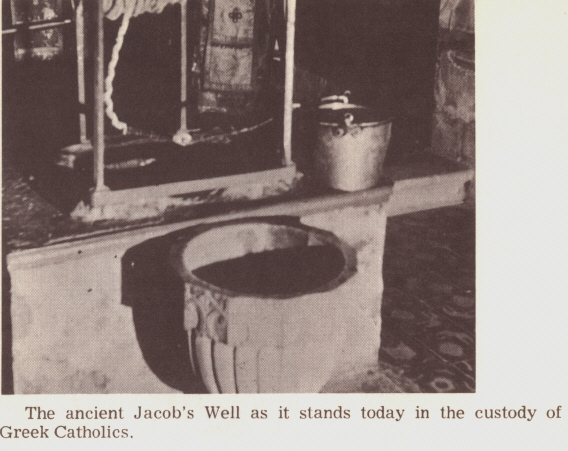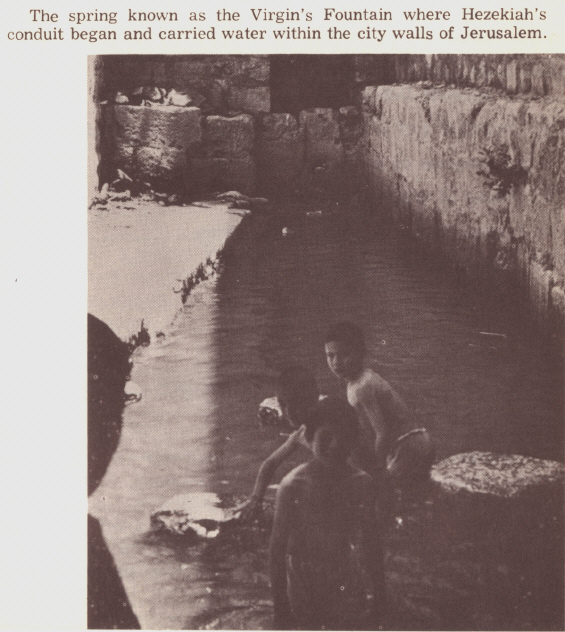Man-Made Water Systems In Palestine -- By: Russell Dell
Journal: Central Bible Quarterly
Volume: CENQ 09:4 (Winter 1966)
Article: Man-Made Water Systems In Palestine
Author: Russell Dell
CenQ 9:4 (Winter 1966) p. 2
Man-Made Water Systems In Palestine


CenQ 9:4 (Winter 1966) p. 3
Chapter I: Man-Made Water Systems In Palestine
Palestine has always been in a strategic location because it is the bridge land of the Near East and Africa. One factor that makes this land unique is the historical struggle over possession and use of the waters available. This study is an attempt to show what man has done to tap and preserve the water resources in the land. Most of the knowledge attainable comes from archaeological discovery. Although the natural rivers and lakes are a vital source for water, they are not pertinent to the subject of this study, in that the present subject is an examination of systems which were built by man.
The extent of this study reaches from the beginnings of known man-made water systems through to the Roman period. The period between the Roman Era and the British Mandatory Government (established in 1917) is not included as a part of this study.
Water is a problem of top priority in present day Arab-Israeli disputes. In the setting of the present day problems over water, several questions could be asked. Has water been historically a point of contention in Palestine? How much effort was put into water discovery and preservation by inhabitants? Were nations only as strong as their water systems? What has the substance of water meant to the peoples of this land? Was there any significance in Jesus’ likening spiritual regeneration to waters that never cease to flow as in John 4:14? “But whosoever drinketh of the water that I shall give him shall never thirst; but the water that I shall give him shall he in him a well of water springing up into everlasting life.” These are all significant questions; however, in that eternal destiny depends upon the acceptance or rejection of Christ for all men, the last question becomes the most important. The first questions bear a historical significance while the last question bears an eternal one. The answers to these questions will help one to understand why the people acted and reacted as they did in Palestine where water issues and disputes were involved.
CenQ 9:4 (Winter 1966) p. 4
The primary thrust of this study is archaeological rather than theological. Archaeology is an important study in connection with the Old Testament. In taking a grammatico-historical view to the Scriptures, Old Testament history is important Studies in archaeological areas are helpful in understanding the mannerisms of the ancient people spoken of in the Old Testament. ...
Click here to subscribe
